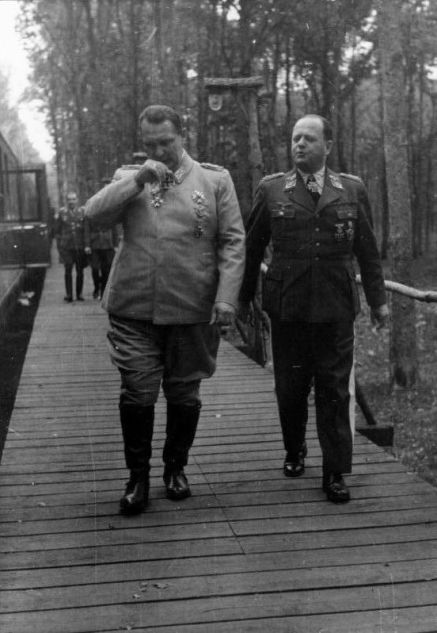On 8 March 1946, Erhard Milch, one of the commanders of the German Air Force (the Luftwaffe) and a half-Jew who had achieved the rank of field marshal, was called as a witness by Hermann Göring's defence counsel Otto Stahmer.
Milch described the creation of the Luftwaffe and the friendly relations with Western European countries, and then moved on to the events of 1939. He made every effort to stress that the outbreak of World War II and especially the attack on the Soviet Union had been Hitler's personal initiative and that the military leadership was wary of it.
Milch was particularly zealous in his defence of Göring. “I was always under the impression – this already became apparent at the time of the occupation of the Rhineland – that he was worried lest Hitler's policy might lead to war. “In my opinion, he was against war… My offer to try to speak to Hitler once more was declared by the Reich Marshal to be absolutely hopeless”, the field marshal claimed.
According to the field marshal, he had never heard from Göring about “a large-scale plan for waging an extensive war”. However, no one was supposed to hear about it, as all the attacks, except the “affair with Poland”, Hitler had planned in secret even from his generals, the witness explained.
Erhard Milch also denied Göring's involvement in medical experiments on inmates of concentration camps: “The Reich Marshal asked me, when I told him about such and such experiments, ‘What does this mean?’ I gave him the reply which I had been given by the medical inspector. I told him that we did not want to have anything to do with them, and that we repudiated them. He said he was exactly of the same opinion, but I should be very careful not to provoke the SD or treat them badly”.
In response to all this, Robert Jackson, chief US prosecutor at the Nuremberg trials, remarked: “This witness has indicated that he has no knowledge of the subject; he did not know the orders which are in evidence, and he assumes to state the attitude of the Reich Marshal”. “I think we have been very liberal in allowing all kinds of statements, but it does seem to me that this passes anything that is suitable as evidence”, Jackson noted.
During cross-examination, the American prosecution presented Milch with documents refuting his testimony (for example, that Goering as head of the Luftwaffe was not aware of the use of concentration camp prison labour in military factories).
Ultimately, despite Milch's efforts, the prosecution would manage to use his testimony against the defendants.
Erhard Milch was a unique figure in the Nazi leadership. He served in aviation during World War I. Afterwards, he worked for Junkers Luftverkehr and was one of the founders of Deutsche Luft Hansa A.G. After becoming managing director (one of three) of the newly-formed airline Luft Hansa in 1928, Milch quickly made political investments: he paid large sums personally to Göring every month, and gave Hitler an aircraft as a gift.
When the Nazis came to power, Göring offered Milch the post of state secretary, effectively Deputy Reich Minister, settling the issue of Milch's “racial inferiority” in his own way: “I decide who is a Jew here”.
While working for the Nazis, Milch ensured record aircraft production at high quality, organised the aviation infrastructure, and was competent in all related fields. In 1940, he was promoted to the rank of field marshal general. In 1942, he even tried to replace Göring in the ministerial post. Reichsleiter Ley outlined the career ceiling for Milch: “Calm down, you will not get rid of Göring. He may be overrated, but he shines like a copper basin. And you, my friend, excuse me, are not a figure for a show”.
In June 1944, Milch resigned and in May 1945, he was arrested by the British, fighting off the military police with a marshal's baton. A year later, Milch would be prosecuted for using slave labour. He would be sentenced to life imprisonment, which would soon be commuted to 15 years. But in 1954, he was released.
Source:
“The Rise and Fall of the German Air Force: 1933 – 1945” by Public Record Office, (Russian: “The True History of the Luftwaffe”, translated from English by P. Smirnov)
























